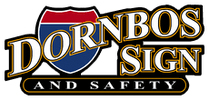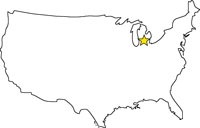Controlling traffic on private roads and property.
20th Jun 2019
Do traffic laws apply on private roads?
This is a frequently asked question across all 50 states. The short answer is that while some traffic laws do not apply when driving on private property, it is still possible for drivers to be charged should they commit a serious traffic violation. This includes negligent driving, reckless driving and driving under the influence (DUI).
But in this answer we miss a critical point.
If we are asking whether or not traffic laws apply, then we are missing the point of why we have traffic laws in the first place. The goal is to keep national mobility going and to keep our citizens safe.
A critical part of how we improve the mobility and safety of all road users is governed by the MUTCD.
What is the MUTCD?
The MUTCD, or Manual on Uniform Traffic Control Devices , is the law that governs all traffic control devices. That’s road signage to you and me.
It is issued by the Federal Highway Administration and contains the national standards for all traffic control devices. It includes their design, application, placement and so forth.
Put plainly, the MUTCD is the manual that brings uniformity to the nation’s roadways.
All public agencies and the owners of private roads that are open to public travel across the nation, including those in shopping centers, airports, toll roads, parking lots, sports arenas and theme parks, rely on the MUTCD to keep things running.
Without the MUTCD, there would be no consistency in road signage. That would mean no reliable way of informing road users about the many things they need to know about when driving. This ranges from road hazards to where to watch out for kids running into the road.
As the owner of a private road, can I be prosecuted for not following the MUTCD?
In short, the answer is no, you cannot.
The Federal Highway Administration has not deemed it necessary to give highway agencies the responsibility of enforcing MUTCD compliance for traffic control devices on private roads. This is because it believes the people that own these roads can be trusted to observe the manual themselves.
That said, it is possible that people and agencies that do not comply with the MUTCD can lose their access to federal-aid funding. They could also face a substantial increase in tort liability as a consequence.
In addition, non-observance of the MUTCD can impact the people using private roads as much as it can those in charge. While they don’t generally exercise it, the police do have the right to write tickets for reckless driving and the like on private roads.
It is our duty as citizens of America to strive to serve and protect our fellow man, not because it is a legally enforceable requirement, but because it is our privilege to do so.
One step all owners of private roads should take in pursuit of this noble goal is to place the appropriate recognizable signage. Stop, speed limit, watch for children and others should be placed in accordance to the road language of the USA: the MUTCD.
Get the official MUTCD for free here.
For more information on the MUTCD, its observance and answers to frequently asked questions, please visit the official MUTCD government website . Laws will vary from state to state, so always check the current regulations for where you are.




